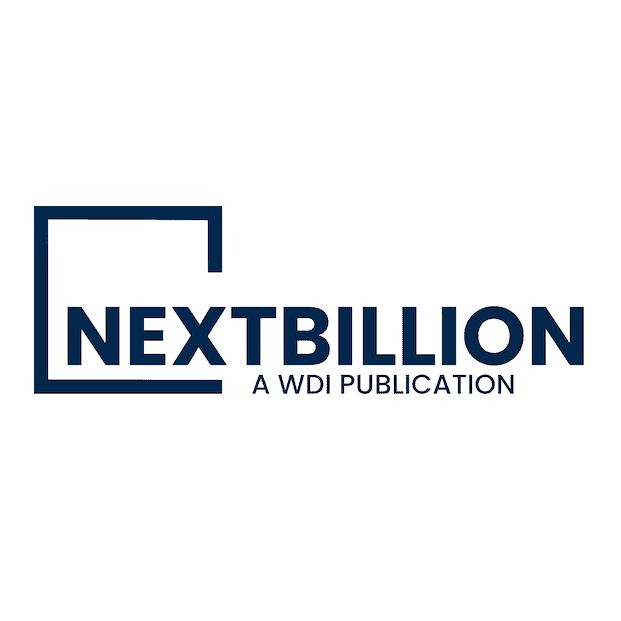-
Rethinking Education to Re-Engage Youth: Why It’s Time to Focus on Practical Skill Building
In 2023, 20% of youth globally were not involved in employment, education or training — and there is a concerning skills gap, particularly in low- and middle-income countries (LMICs). Meanwhile, the supply of educated youth is exceeding the supply of skilled jobs in many LMICs, forcing young workers to seek lower-paying jobs unrelated to their education and skills. Jessica Crist at SDG Academy explores these challenges, and explains why they're driving the need for a new approach to higher education, focused on practical skill-building and non-traditional formats like online courses, short-term programs and professional training.
- Categories
- Education, Technology
-
Comparing Four Last-Mile Distribution Models: Best Practices and Common Pitfalls in Reaching Rural Customers
Last-mile distributors have found innovative ways to affordably reach consumers living in underserved and/or hard-to-reach areas. As Lucie Klarsfeld McGrath, Jeanne Charbit and Joana Furquim at Hystra explain, these companies use many different last-mile distribution models, tailored to different goods and locations. They discuss the revenue and impact potential of four common models, assessing when they are most relevant, exploring their limitations and optimal conditions for success, and highlighting the key challenges and questions they face moving forward.
- Categories
- Social Enterprise
-
Ending the Vicious Circle in PAYGo Solar: How Companies and Investors Can Move the Sector Toward ‘PAYGo 2.0’
The Pay-As-You-Go (PAYGo) solar industry is facing decreases in both sales and investment capital, as rising customer default rates are driving a vicious circle of worsened unit economics and higher product prices. However, as Dan Murphy and Willem Nolens at PAYGo Lab explain, some companies are thriving by implementing systems to improve customer selection, education and support — an approach often referred to as "PAYGo 2.0." They analyze the industry’s challenges and share key lessons and best practices that can enhance its operational efficiency, financial resilience and sustainable growth.
- Categories
- Energy, Environment, Finance, Investing
-
How the Mining Industry Can Protect Indigenous Rights: Risks and Best Practices for Businesses
As the global demand for critical metals and minerals grows, mining businesses have seen growing resistance from Indigenous communities around the world, due to the impacts mining activity has on their lands and resources. Anna-Kay Brown at Stanbrook Prudhoe explains how mining operations can avoid the financial and reputational risks these conflicts can cause, sharing best practices for protecting Indigenous communities' rights and preserving their wellbeing.
- Categories
- Environment
- Tags
- ESG, human rights, mining, public policy, regulations
-
Fueling Change: The Multiple Impacts of Increasing Liquefied Petroleum Gas Usage in Rural India
To address the negative impacts of cooking with biomass fuel, the Indian government launched a program in 2018 that offers free access to a clean gas cookstove and a refillable cylinder of liquefied petroleum gas (LPG). But as Shobhit Mishra and Vaishaly Shrimall at MSC explain, the program faced logistical challenges that limited uptake among rural households. They explore the barriers that hinder the adoption of gas cooking in rural India, and discuss the impact of an MSC program that leverages self-help groups to boost LPG uptake while creating entrepreneurship opportunities for local women.
- Categories
- Energy, Environment, Finance
-
The Transformative Impact of Remote Work: How Online Jobs are Empowering Workers in Emerging Markets
The COVID-19 pandemic caused the largest shakeup in workforce culture since the emergence of the internet, with companies and workers embracing remote and hybrid approaches. According to Namya Sethi at Girl Power Talk, this shift continues to affect many professions years later, and these changes are having an especially pronounced effect in emerging economies. She explores how remote work is connecting global employers to local talent in emerging markets, and discusses the impacts this is having on workers, companies and business ecosystems.
- Categories
- Education, Technology
-
The Inverse Relationship Between Liquidity and Impact: Results from Toniic’s Groundbreaking 10-Year Study of the Practices of Top Impact Investors
There has long been a debate about whether impact investing must involve a tradeoff between social or environmental impact and financial returns. But as Adam Bendell at Toniic argues, there's a different question that has not garnered as much discussion in the sector: whether investors also face a tradeoff between liquidity and impact. He shares new data from Toniic’s T100 Project — a 10-year study of impact investors' practices and preferences — which shows convincingly that investors need to accept illiquidity for greater impact, and finds plenty of investor appetite for that tradeoff.
- Categories
- Investing
-
Shifting from Aid to Entrepreneurship: A Better Response to Forced Displacement
In 2024, the number of forcibly displaced people worldwide reached nearly 123 million. According to Mary Mwangi at Inkomoko, this growing reality, coupled with shrinking humanitarian aid, demands a new response. Instead of seeing forcibly displaced people as passive recipients of aid living in costly refugee camps, she urges the global development sector to view them as individuals with entrepreneurial drive and economic potential. She explores how Inkomoko is working to empower displaced entrepreneurs in Africa through financing, skill development and access to markets.
- Categories
- Investing










